#what is crm software used for
Explore tagged Tumblr posts
Text
Top five crm software compared with table
CRM software is an essential tool for businesses of all sizes to manage customer relationships and improve sales. With so many options available, it can be challenging to choose the right CRM software for your business. In this article, we will compare the top five CRM software options to help you make an informed decision.
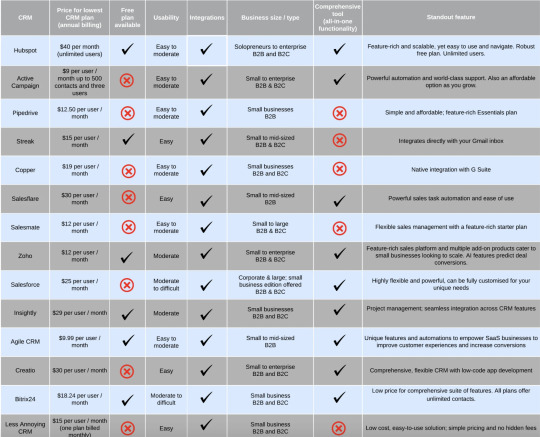
1. HubSpot CRM
HubSpot CRM is a popular CRM software that offers a range of features to help businesses manage their customer relationships. It is a free CRM solution that is easy to use and offers a range of integrations with other business tools. HubSpot CRM is best suited for small to medium-sized businesses.
Pros
HubSpot CRM is a free solution that offers a range of features to help businesses manage their customer relationships.
It is easy to use and offers a range of integrations with other business tools.
HubSpot CRM offers a range of marketing and sales tools to help businesses improve their sales and marketing efforts.
It offers a user-friendly interface that makes it easy to navigate and find the tools you need.
Cons
HubSpot CRM may not be the best option for larger businesses that need more advanced features and tools.
Some users may find the free version to be limited in terms of features and functionality.
2. Salesforce
Salesforce is one of the most popular CRM software options available. It is a cloud-based solution that offers a range of features and tools to help businesses manage their customer relationships. Salesforce is best suited for medium to large-sized businesses.
Pros
Salesforce offers a range of features and tools to help businesses manage their customer relationships.
It is a cloud-based solution that can be accessed from anywhere.
Salesforce offers a range of integrations with other business tools.
It offers a user-friendly interface that makes it easy to navigate and find the tools you need.
Cons
Salesforce can be expensive, especially for smaller businesses.
Some users may find the interface to be overwhelming at first, as there are many features and tools to explore.
3. Freshsales
Freshsales is a comprehensive and smart solution to discover leads and boost engagement. It is a cloud-based solution that offers a range of features and tools to help businesses manage their customer relationships. Freshsales is best suited for small to medium-sized businesses.
Pros
Freshsales offers a range of features and tools to help businesses manage their customer relationships.
It is a cloud-based solution that can be accessed from anywhere.
Freshsales offers a range of integrations with other business tools.
It offers a user-friendly interface that makes it easy to navigate and find the tools you need.
Cons
Freshsales may not be the best option for larger businesses that need more advanced features and tools.
Some users may find the pricing to be expensive, especially for smaller businesses.
4. Zoho CRM
Zoho CRM is a classic full-stack CRM that helps businesses of all sizes work and scale. It is a cloud-based solution that offers a range of features and tools to help businesses manage their customer relationships. Zoho CRM is best suited for small to medium-sized businesses.
Pros
Zoho CRM offers a range of features and tools to help businesses manage their customer relationships.
It is a cloud-based solution that can be accessed from anywhere.
Zoho CRM offers a range of integrations with other business tools.
It offers a user-friendly interface that makes it easy to navigate and find the tools you need.
Cons
Zoho CRM may not be the best option for larger businesses that need more advanced features and tools.
Some users may find the interface to be overwhelming at first, as there are many features and tools to explore.
5. Less Annoying CRM
Less Annoying CRM is a simple CRM built just for small businesses and their teams. It is a cloud-based solution that offers a range of features and tools to help businesses manage their customer relationships. Less Annoying CRM is best suited for small businesses.
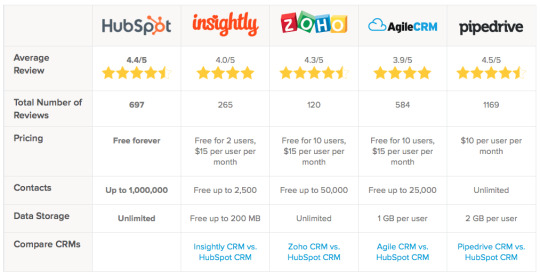
Pros
Less Annoying CRM is a simple and easy-to-use solution that is built just for small businesses.
It is a cloud-based solution that can be accessed from anywhere.
Less Annoying CRM offers a range of integrations with other business tools.
It offers a user-friendly interface that makes it easy to navigate and find the tools you need.
Cons
Less Annoying CRM may not be the best option for larger businesses that need more advanced features and tools.
Some users may find the pricing to be expensive, especially for smaller businesses.
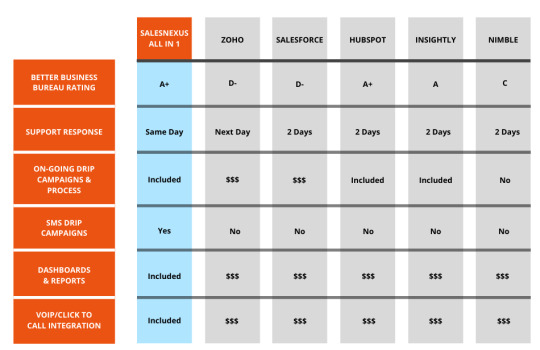
In conclusion, these five CRM software options offer a range of features and tools to help businesses manage their customer relationships. HubSpot CRM is a free solution that is best suited for small to medium-sized businesses. Salesforce, Freshsales, and Zoho CRM are cloud-based solutions that offer a range of features and tools to help businesses manage their customer relationships. Less Annoying CRM is a simple and easy-to-use solution that is built just for small businesses. By comparing these five CRM software options, you can choose the one that best fits your business needs.
#crm software#software crm#10 best crm software#software crm system#how to make crm software#what is the best crm software#how to use crm software#is crm a software#famous crm software#how to sell crm software#what does crm software stand for#does google have a crm software#does google have crm software#what is crm software stand for#what does crm software mean#how much does crm software cost#what does crm stand for in software#what does crm software do#what crm software does#what is crm software used for#what are the best crm software#which crm software is best#how to learn crm software#what is the most commonly used crm software right now#what are crm software#what are some popular crm software#what features should a crm have#what are the types of crm software#how crm software works#how much is crm software
0 notes
Text
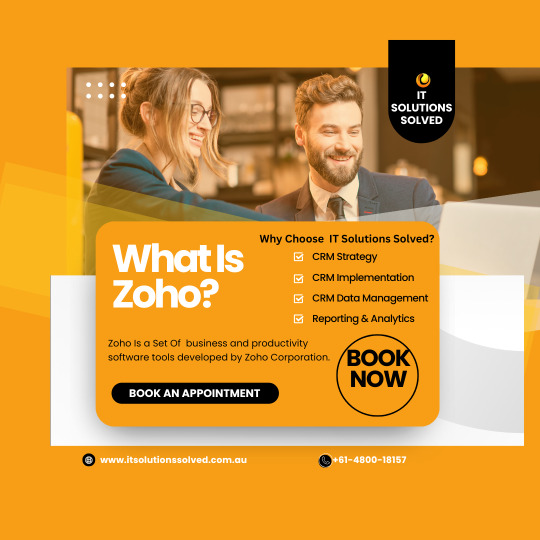
Discover Zoho CRM: A Game-Changer for Your Business
#what is zoho crm#what is zoho used for#what is zoho corporation#what does zoho#what is zoho software
0 notes
Text
What are the next steps after obtaining an insurance broker license, and how can you generate potential leads using Mzapp CRM software?
Congratulations on securing your insurance broker license! The journey doesn’t end here; it’s just the beginning of building a successful insurance brokerage. Here’s how you can proceed and leverage Mzapp CRM software to find potential leads:
Steps After Getting Your Insurance Broker License
Understand Your Market: Research your target audience (individuals, businesses, or specific sectors).
Develop a Business Plan: Set goals for client acquisition, revenue, and operational processes.
Build a Network: Partner with insurance providers and attend industry events to establish your presence.
Create an Online Presence: Build a professional website and maintain active profiles on social platforms.
Offer Value-Added Services: Educate customers on policies, claims management, and risk assessments.
Using Mzapp CRM Software to Generate Leads
Lead Capture: Utilize Mzapp’s integrated forms and web tracking tools to capture inquiries from your website or social media.
Automated Follow-Ups: Set up personalized email and SMS follow-ups to nurture leads effectively.
Lead Scoring: Prioritize leads based on their interaction history, ensuring you focus on high-potential prospects.
Data-Driven Campaigns: Use analytics to identify what works and launch targeted campaigns.
Seamless Policy Management: Impress leads by showcasing how smoothly you manage policies and claims through Mzapp.
Why Choose Mzapp CRM?
Mzapp CRM simplifies lead management, streamlines operations, and provides insights into customer behavior, making it easier to convert prospects into loyal clients.
Learn more about how Mzapp can transform your insurance business here.
#Question:#What are the next steps after obtaining an insurance broker license#and how can you generate potential leads using Mzapp CRM software?#Answer:#Congratulations on securing your insurance broker license! The journey doesn’t end here; it’s just the beginning of building a successful i#Steps After Getting Your Insurance Broker License#Understand Your Market: Research your target audience (individuals#businesses#or specific sectors).#Develop a Business Plan: Set goals for client acquisition#revenue#and operational processes.#Build a Network: Partner with insurance providers and attend industry events to establish your presence.#Create an Online Presence: Build a professional website and maintain active profiles on social platforms.#Offer Value-Added Services: Educate customers on policies#claims management#and risk assessments.#Using Mzapp CRM Software to Generate Leads#Lead Capture: Utilize Mzapp’s integrated forms and web tracking tools to capture inquiries from your website or social media.#Automated Follow-Ups: Set up personalized email and SMS follow-ups to nurture leads effectively.#Lead Scoring: Prioritize leads based on their interaction history#ensuring you focus on high-potential prospects.#Data-Driven Campaigns: Use analytics to identify what works and launch targeted campaigns.#Seamless Policy Management: Impress leads by showcasing how smoothly you manage policies and claims through Mzapp.#Why Choose Mzapp CRM?#Mzapp CRM simplifies lead management#streamlines operations#and provides insights into customer behavior#making it easier to convert prospects into loyal clients.#Learn more about how Mzapp can transform your insurance business here.
1 note
·
View note
Text

How to Choose the Best CRM Software for Your Business
Choosing the right CRM software for your business is a big decision — and the right one can make a world of difference. Whether you’re running a small startup or managing a growing company, having an effective CRM (Customer Relationship Management) system helps you keep track of customers, boost sales, and improve overall productivity. Let’s walk through how you can choose the best CRM for your business without getting overwhelmed.
Why Your Business Needs a CRM
A CRM isn’t just a tool — it’s your business’s central hub for managing relationships. If you’re still relying on spreadsheets or scattered notes, you’re probably losing time (and leads). A good CRM helps you:
Keep customer data organized in one place
Track leads, sales, and follow-ups
Automate routine tasks
Get insights into sales performance
Improve customer service
The goal is simple: work smarter, not harder. And with an affordable CRM that fits your needs, you’ll see faster growth and smoother processes.
Define Your Business Goals
Before diving into features, figure out what you actually need. Ask yourself:
Are you trying to increase sales or improve customer service?
Do you need better lead tracking or marketing automation?
How big is your team, and how tech-savvy are they?
What’s your budget?
Knowing your goals upfront keeps you from wasting time on CRMs that might be packed with unnecessary features — or worse, missing key ones.
Must-Have Features to Look For
When comparing CRM options, focus on features that truly matter for your business. Here are some essentials:
Contact Management – Store customer details, interactions, and notes all in one place.
Lead Tracking – Follow leads through the sales funnel and never miss a follow-up.
Sales Pipeline Management – Visualize where your deals stand and what needs attention.
Automation – Save time by automating emails, reminders, and data entry.
Customization – Adjust fields, workflows, and dashboards to match your process.
Third-Party Integrations – Ensure your CRM connects with other software you rely on, like email marketing tools or accounting systems.
Reports & Analytics – Gain insights into sales, performance, and customer behavior.
User-Friendly Interface – If your team finds it clunky or confusing, they won’t use it.
Budget Matters — But Value Matters More
A CRM doesn’t have to cost a fortune. Plenty of affordable CRM options offer robust features without the hefty price tag. The key is balancing cost with value. Don’t just chase the cheapest option — pick a CRM that supports your business growth.
Take LeadHeed, for example. It’s an affordable CRM designed to give businesses the tools they need — like lead management, sales tracking, and automation — without stretching your budget. It’s a smart pick if you want to grow efficiently without overpaying for features you won’t use.
Test Before You Commit
Most CRMs offer a free trial — and you should absolutely use it. A CRM might look great on paper, but it’s a different story when you’re actually using it. During your trial period, focus on:
How easy it is to set up and start using
Whether it integrates with your existing tools
How fast you can access and update customer information
If your team finds it helpful (or frustrating)
A trial gives you a real feel for whether the CRM is a good fit — before you commit to a paid plan.
Think About Long-Term Growth
Your business might be small now, but what about next year? Choose a CRM that grows with you. Look for flexible pricing plans, scalable features, and the ability to add more users or advanced functions down the line.
It’s better to pick a CRM that can expand with your business than to go through the hassle of switching systems later.
Check Customer Support
Even the best software can hit a snag — and when that happens, you’ll want reliable support. Look for a CRM that offers responsive customer service, whether that’s live chat, email, or phone. A system is only as good as the help you get when you need it.
Read Reviews and Compare
Don’t just rely on the CRM’s website. Read reviews from other businesses — especially ones similar to yours. Sites like G2, Capterra, and Trustpilot offer honest insights into what works (and what doesn’t). Comparing multiple CRMs ensures you make a well-rounded decision.
The Bottom Line
Choosing the best CRM software for your business doesn’t have to be complicated. By understanding your goals, focusing on essential features, and keeping scalability and budget in mind, you’ll find a CRM that fits like a glove.
If you’re looking for an affordable CRM Software that checks all the right boxes — without cutting corners — LeadHeed is worth exploring. It’s built to help businesses like yours manage leads, automate tasks, and gain valuable insights while staying within budget.
The right CRM can transform how you run your business. Take the time to find the one that supports your growth, keeps your team organized, and helps you deliver an even better experience to your customers.
3 notes
·
View notes
Text
Cloud Computing: Definition, Benefits, Types, and Real-World Applications
In the fast-changing digital world, companies require software that matches their specific ways of working, aims and what their customers require. That’s when you need custom software development services. Custom software is made just for your organization, so it is more flexible, scalable and efficient than generic software.
What does Custom Software Development mean?
Custom software development means making, deploying and maintaining software that is tailored to a specific user, company or task. It designs custom Software Development Services: Solutions Made Just for Your Business to meet specific business needs, which off-the-shelf software usually cannot do.
The main advantages of custom software development are listed below.
1. Personalized Fit
Custom software is built to address the specific needs of your business. Everything is designed to fit your workflow, whether you need it for customers, internal tasks or industry-specific functions.
2. Scalability
When your business expands, your software can also expand. You can add more features, users and integrations as needed without being bound by strict licensing rules.
3. Increased Efficiency
Use tools that are designed to work well with your processes. Custom software usually automates tasks, cuts down on repetition and helps people work more efficiently.
4. Better Integration
Many companies rely on different tools and platforms. You can have custom software made to work smoothly with your CRMs, ERPs and third-party APIs.
5. Improved Security
You can set up security measures more effectively in a custom solution. It is particularly important for industries that handle confidential information, such as finance, healthcare or legal services.
Types of Custom Software Solutions That Are Popular
CRM Systems
Inventory and Order Management
Custom-made ERP Solutions
Mobile and Web Apps
eCommerce Platforms
AI and Data Analytics Tools
SaaS Products
The Process of Custom Development
Requirement Analysis
Being aware of your business goals, what users require and the difficulties you face in running the business.
Design & Architecture
Designing a software architecture that can grow, is safe and fits your requirements.
Development & Testing
Writing code that is easy to maintain and testing for errors, speed and compatibility.
Deployment and Support
Making the software available and offering support and updates over time.
What Makes Niotechone a Good Choice?
Our team at Niotechone focuses on providing custom software that helps businesses grow. Our team of experts works with you throughout the process, from the initial idea to the final deployment, to make sure the product is what you require.
Successful experience in various industries
Agile development is the process used.
Support after the launch and options for scaling
Affordable rates and different ways to work together
Final Thoughts
Creating custom software is not only about making an app; it’s about building a tool that helps your business grow. A customized solution can give you the advantage you require in the busy digital market, no matter if you are a startup or an enterprise.
#software development company#development company software#software design and development services#software development services#custom software development outsourcing#outsource custom software development#software development and services#custom software development companies#custom software development#custom software development agency#custom software development firms#software development custom software development#custom software design companies#custom software#custom application development#custom mobile application development#custom mobile software development#custom software development services#custom healthcare software development company#bespoke software development service#custom software solution#custom software outsourcing#outsourcing custom software#application development outsourcing#healthcare software development
2 notes
·
View notes
Text
How Enterprises Use Voice APIs for Call Routing and IVR Automation
Enterprises today handle thousands of customer calls every day. To manage these efficiently, many are turning to voice APIs. These tools help businesses automate call routing and interactive voice response (IVR) systems.

What Are Voice APIs?
Voice APIs are software interfaces that allow developers to build voice-calling features into apps or systems. These APIs can trigger actions like placing calls, receiving them, or converting speech to text. For enterprises, voice APIs make it easy to integrate intelligent call handling into their workflow.
Smarter Call Routing
Call routing directs incoming calls to the right agent or department. With voice APIs, this process becomes dynamic and rules based.
For example, a customer calling from a VIP number can be routed directly to a premium support team. APIs allow routing rules based on caller ID, time of day, location, or even previous interactions. This reduces wait times and improves customer satisfaction.
Automated IVR Systems
Interactive Voice Response (IVR) lets callers interact with a menu system using voice or keypad inputs. Traditional IVR systems are rigid and often frustrating.
Voice APIs enable smarter, more personalized IVR flows. Enterprises can design menus that adapt in real time. For instance, returning callers may hear different options based on their past issues. With speech recognition, users can speak naturally instead of pressing buttons.
Scalability and Flexibility
One major benefit of using voice API is scalability. Enterprises don’t need physical infrastructure to manage call volume. The cloud-based nature of voice APIs means businesses can handle spikes in calls without losing quality.
Also, changes to call flows can be made quickly. New routing rules or IVR scripts can be deployed without touching hardware. This agility is crucial in fast-moving industries.
Enhanced Analytics and Integration
Voice APIs also provide detailed data. Enterprises can track call duration, drop rates, wait times, and common IVR paths. This data helps optimize performance and identify pain points.
Moreover, APIs easily integrate with CRMs, ticketing systems, and analytics tools. This ensures a seamless connection between calls and other business processes.
Final Thoughts
Voice APIs are transforming how enterprises manage voice communications. From intelligent call routing to adaptive IVR systems, the benefits are clear. Enterprises that adopt these tools gain speed, efficiency, and better customer experience, and that too without a lot of effort.
4 notes
·
View notes
Text
What Is EV Charging Management Software?

Let’s get one thing out of the way EV charging isn’t just about plugging into a socket and walking away. Behind that simple user experience is a whole ecosystem that needs to run like a well-oiled (or should we say, well-charged) machine. That’s where EV charging management software steps in.
Think of it as the backend control room that powers everything from session tracking to billing, charger health, and even the queue at your nearest public station. Whether you’re managing a single station or hundreds across locations, this software is what keeps operations clean, trackable, and profitable.
Let’s break this down properly and make sense of what matters especially if you’re planning to get into the EV game with some business sense, not just shiny dashboards.
What is EV Charging Management Software, Really?
In simple words, EV Charging Management Software (CMS) is a centralized system that lets charging station owners, operators, and businesses manage, monitor, and monetize their EV charging infrastructure.
It does everything from:
Authorizing users and vehicles
Monitoring energy usage
Managing peak loads
Automating billing and invoicing
Handling remote diagnostics
And integrating with apps, wallets, and CRM tools
Without it, you'd be managing your EV chargers with spreadsheets, phone calls, and prayers.
Who Needs It?
If you're a fleet operator, public charging station owner, commercial building manager, or even a residential society exploring EV readiness this software isn't a luxury. It's survival gear.
And yes, government projects, retail malls, parking lots, and logistics parks are all getting in on it.
You want uptime, transparency, and ROI? You need a CMS that plays nice with your hardware and grows as your needs change.
What Problems Does It Solve?
Here’s where we skip the fluff and talk about real issues.
1. Energy Load Management
Uncontrolled EV charging can blow up your utility bill or trip the local transformer. CMS helps you control how much energy flows where and when without causing grid panic.
2. Charger Downtime
No operator wants to get that “your charger isn’t working” call at 2 AM. A solid CMS alerts you before users complain. Remote diagnostics and health checks are baked in.
3. User Authentication & Payments
Want to let only subscribed users charge? Want to integrate UPI, cards, or in-app wallets? A proper CMS does all that without you writing a single line of code.
4. Revenue Leakage
Imagine running a business where you're not sure who paid, how much power was delivered, or how many sessions failed. A CMS gives you transaction-level visibility. No guessing games.
5. Scalability
Planning to go from 5 chargers to 50? From 1 location to 12 cities? Your CMS better be ready before your Excel sheet dies of stress.
Must-Have Features (Beyond Just “Dashboard Looks Cool”)
A good EV CMS isn't just eye candy. Here's what you should be checking for:
OCPP Compliance: Plays well with most hardware brands
Dynamic Load Balancing: Keeps your power use smart and optimized
Real-time Monitoring: Know what’s happening where, second by second
Custom Pricing Models: Per minute, per kWh, time-of-day rates you control the game
Fleet & Group Management: Especially if you're running EV fleets or shared chargers
User Access Control: Set roles, permissions, and access levels
White-label Option: Your brand, your logo, your rules
So, Who’s Doing It Right?
There are plenty of software platforms out there that’ll promise the moon until you actually plug them in. But a few players are doing it with serious focus on customization, clean architecture, and real customer support.
Stellen Infotech: Quietly Building the Backbone for EV Ops
While most are busy chasing investor buzzwords, Stellen Infotech is quietly building robust, scalable, and adaptable EV charging software solutions for businesses that actually need to function in the real world.
They’re not just slapping a UI on top of code and calling it a platform. Their stack includes features like:
Custom-built integrations for fleets
White-labeled dashboards
Load optimization modules
Billing and invoicing flexibility
API support for third-party logistics, CRMs, or payment apps
The vibe? Practical tech that doesn’t crash when you scale or cry when you run 100 sessions a day. You’ll notice they’re not trying to be the flashiest just the most dependable in the room. And that’s honestly what most businesses want when dealing with critical infrastructure.
Can’t I Just Build This Myself?
Sure, if you’re sitting on a dev team with grid logic, payment gateway knowledge, OCPP expertise, and UI chops. Otherwise, you’ll spend 18 months burning money, and still end up with something half-baked.
EV management is not just a software challenge it’s a compliance, connectivity, and customer experience challenge. You’re better off working with a team that already figured that out.
What About Hardware Compatibility?
The good ones like Stellen’s platform are built to support OCPP 1.6 and 2.0, meaning they work with a wide range of chargers. You’re not locked into one brand or vendor, which is great because EV hardware isn’t cheap and upgrading just for software issues is bad business.
Final Thoughts: Where This Is Headed
EV charging isn't a novelty anymore. With mandates, subsidies, and rising fuel prices, we’re going to see charging stations pop up like ATMs did in the 2000s. But here’s the thing the ones who’ll stay profitable aren’t the ones who bought the fanciest chargers. It’s the ones who run them smartly.
That’s where EV charging management software earns its keep.
Whether you’re just setting up or scaling across cities, having a solid CMS isn’t optional it’s your operational backbone. Platforms like what Stellen Infotech offers are making this easier for businesses that don’t want to get stuck figuring out load curves and session reports at 11 PM.
And honestly? That’s the kind of tech backbone more EV businesses need not another flashy dashboard with no substance.
2 notes
·
View notes
Text
Hey Business Innovators,
Success in business isn’t just about hard work; it’s about smart strategies and continuous growth. Here are three powerful tips to elevate your business game:
1. Embrace Continuous Learning: The business world is always evolving. Stay ahead by constantly learning new skills, attending workshops, and reading industry-related books and articles. Knowledge is your most valuable asset.
2. Network Strategically: Build meaningful connections with like-minded professionals. Attend industry events, join online forums, and participate in networking groups. These connections can lead to new opportunities, partnerships, and insights.
3. Leverage Technology: Use the latest tools and software to streamline your operations. From project management apps to CRM systems, technology can boost your productivity and efficiency, allowing you to focus on what truly matters—growing your business.
Remember, every big success story starts with small, consistent steps. Keep pushing forward, stay adaptable, and never stop innovating. Your business dreams are within reach!
Stay motivated and keep thriving!

#businesstips#entrepreneurship#continuouslearning#networking#technology#businessgrowth#Success#entrepreneur#billionaire#my post#rodrigororschach#Rodrigo Rorschach#@rodrigororschach
9 notes
·
View notes
Text
Role of AI and Automation in Modern CRM Software
Modern CRM systems are no longer just about storing contact information. Today, businesses expect their CRM to predict behavior, streamline communication, and drive efficiency — and that’s exactly what AI and automation bring to the table.

Here’s how AI and automation are transforming the CRM landscape:
1. Predictive Lead Scoring
Uses historical customer data to rank leads by conversion probability
Prioritizes outreach efforts based on buying signals
Reduces time spent on low-potential leads
Improves sales team performance and ROI
2. Smart Sales Forecasting
Analyzes trends, seasonality, and deal history to forecast revenue
Updates projections in real-time based on new data
Helps sales managers set realistic targets and resource plans
Supports dynamic pipeline adjustments
3. Automated Customer Support
AI-powered chatbots handle FAQs and common issues 24/7
Sentiment analysis flags negative interactions for human follow-up
Automated ticket routing ensures faster resolution
Reduces support workload and boosts satisfaction
4. Personalized Customer Journeys
Machine learning tailors emails, offers, and messages per user behavior
Automation triggers based on milestones or inactivity
Custom workflows guide users through onboarding, upgrades, or renewals
Improves customer engagement and retention
5. Data Cleanup and Enrichment
AI tools detect duplicate records and outdated info
Automatically update fields from verified external sources
Maintains a clean, high-quality CRM database
Supports better segmentation and targeting
6. Workflow Automation Across Departments
Automates repetitive tasks like task assignments, follow-ups, and alerts
Links CRM actions with ERP, HR, or ticketing systems
Keeps all teams aligned without manual intervention
Custom CRM solutions can integrate automation tailored to your exact process
7. Voice and Natural Language Processing (NLP)
Transcribes sales calls and highlights key insights
Enables voice-driven commands within CRM platforms
Extracts data from emails or chat for automatic entry
Enhances productivity for on-the-go users
#AICRM#AutomationInCRM#CRMSolutions#SmartCRM#CRMDevelopment#AIinBusiness#TechDrivenSales#CustomerSupportAutomation#CRMIntegration#DigitalCRM
2 notes
·
View notes
Text
Discover Zoho CRM: A Game-Changer for Your Business
#what is zoho crm#what is zoho used for#what is zoho corporation#what does zoho#what is zoho software
0 notes
Text
AI Agent Development: How to Create Intelligent Virtual Assistants for Business Success
In today's digital landscape, businesses are increasingly turning to AI-powered virtual assistants to streamline operations, enhance customer service, and boost productivity. AI agent development is at the forefront of this transformation, enabling companies to create intelligent, responsive, and highly efficient virtual assistants. In this blog, we will explore how to develop AI agents and leverage them for business success.

Understanding AI Agents and Virtual Assistants
AI agents, or intelligent virtual assistants, are software programs that use artificial intelligence, machine learning, and natural language processing (NLP) to interact with users, automate tasks, and make decisions. These agents can be deployed across various platforms, including websites, mobile apps, and messaging applications, to improve customer engagement and operational efficiency.
Key Features of AI Agents
Natural Language Processing (NLP): Enables the assistant to understand and process human language.
Machine Learning (ML): Allows the assistant to improve over time based on user interactions.
Conversational AI: Facilitates human-like interactions.
Task Automation: Handles repetitive tasks like answering FAQs, scheduling appointments, and processing orders.
Integration Capabilities: Connects with CRM, ERP, and other business tools for seamless operations.
Steps to Develop an AI Virtual Assistant
1. Define Business Objectives
Before developing an AI agent, it is crucial to identify the business goals it will serve. Whether it's improving customer support, automating sales inquiries, or handling HR tasks, a well-defined purpose ensures the assistant aligns with organizational needs.
2. Choose the Right AI Technologies
Selecting the right technology stack is essential for building a powerful AI agent. Key technologies include:
NLP frameworks: OpenAI's GPT, Google's Dialogflow, or Rasa.
Machine Learning Platforms: TensorFlow, PyTorch, or Scikit-learn.
Speech Recognition: Amazon Lex, IBM Watson, or Microsoft Azure Speech.
Cloud Services: AWS, Google Cloud, or Microsoft Azure.
3. Design the Conversation Flow
A well-structured conversation flow is crucial for user experience. Define intents (what the user wants) and responses to ensure the AI assistant provides accurate and helpful information. Tools like chatbot builders or decision trees help streamline this process.
4. Train the AI Model
Training an AI assistant involves feeding it with relevant datasets to improve accuracy. This may include:
Supervised Learning: Using labeled datasets for training.
Reinforcement Learning: Allowing the assistant to learn from interactions.
Continuous Learning: Updating models based on user feedback and new data.
5. Test and Optimize
Before deployment, rigorous testing is essential to refine the AI assistant's performance. Conduct:
User Testing: To evaluate usability and responsiveness.
A/B Testing: To compare different versions for effectiveness.
Performance Analysis: To measure speed, accuracy, and reliability.
6. Deploy and Monitor
Once the AI assistant is live, continuous monitoring and optimization are necessary to enhance user experience. Use analytics to track interactions, identify issues, and implement improvements over time.
Benefits of AI Virtual Assistants for Businesses
1. Enhanced Customer Service
AI-powered virtual assistants provide 24/7 support, instantly responding to customer queries and reducing response times.
2. Increased Efficiency
By automating repetitive tasks, businesses can save time and resources, allowing employees to focus on higher-value tasks.
3. Cost Savings
AI assistants reduce the need for large customer support teams, leading to significant cost reductions.
4. Scalability
Unlike human agents, AI assistants can handle multiple conversations simultaneously, making them highly scalable solutions.
5. Data-Driven Insights
AI assistants gather valuable data on customer behavior and preferences, enabling businesses to make informed decisions.
Future Trends in AI Agent Development
1. Hyper-Personalization
AI assistants will leverage deep learning to offer more personalized interactions based on user history and preferences.
2. Voice and Multimodal AI
The integration of voice recognition and visual processing will make AI assistants more interactive and intuitive.
3. Emotional AI
Advancements in AI will enable virtual assistants to detect and respond to human emotions for more empathetic interactions.
4. Autonomous AI Agents
Future AI agents will not only respond to queries but also proactively assist users by predicting their needs and taking independent actions.
Conclusion
AI agent development is transforming the way businesses interact with customers and streamline operations. By leveraging cutting-edge AI technologies, companies can create intelligent virtual assistants that enhance efficiency, reduce costs, and drive business success. As AI continues to evolve, embracing AI-powered assistants will be essential for staying competitive in the digital era.
5 notes
·
View notes
Text
What is SaaS and How to Build a SaaS Platform
What is SaaS? SaaS, or Software as a Service, is a cloud-based software delivery model where applications are hosted online and accessed through the internet. Unlike traditional software that requires installation, SaaS applications run on web browsers, offering convenience and flexibility. The provider manages all technical aspects, including updates, maintenance, and security, while users pay a subscription fee for access.
SaaS is popular for its cost-effectiveness and scalability. Businesses use SaaS for tools like customer relationship management (CRM) systems, project management platforms, and communication solutions. Consumers also rely on SaaS for entertainment and personal productivity.
How to Build a SaaS Platform If you're wondering how to build a SaaS platform, here are the essential steps:
Define Your Purpose: Start by identifying a problem that your SaaS platform will address. Research your audience and focus on a specific niche.
Plan Features: List features that add value, such as easy navigation, integrations, and real-time collaboration. Scalability should also be a priority.
Select the Right Technology: Choose technologies like React for frontend development, Node.js or Python for backend, and cloud hosting platforms like AWS.
Create an MVP: Build a Minimum Viable Product to test your concept, gather feedback, and refine your platform.
Ensure Security: Implement strong encryption, secure authentication, and regular updates to protect user data.
By understanding what SaaS is and following these steps, you can build a successful SaaS platform that meets market needs.
2 notes
·
View notes
Text
How to Choose the Best CRM Tool for Your Small Business?
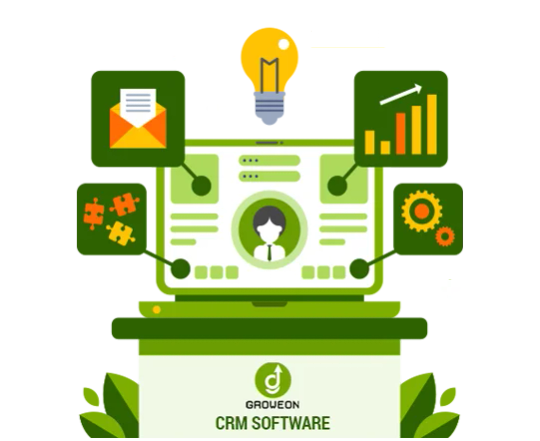
One out of five small businesses fail within the first year. No, this is not to demotivate you but to show you the reality of how important the first five years of a small business are. Most small businesses struggle to deal with customers as customers have different needs, and managing all your different customers feels next to impossible; that’s why you need CRM software.
Customer relationship management (CRM) software has revolutionised the way businesses interact with customers. It helps reduce the need for manual input by automating key processes like tracking customer interactions, managing leads, and organising sales pipelines. CRM software is proven to increase business productivity and efficiency and improve overall customer satisfaction.
Before you put your skates on and look for a CRM tool, it is crucial to choose a CRM tool that is perfect for your business, as the internet is flooded with tons of CRM software. Here are the key factors to consider when selecting the best CRM tool for your small business.
1. Identify Your Business Needs
Before diving into the technical details of various CRM tools, it’s important to clearly identify your business’s unique needs. Ask yourself questions like:
- What are your current pain points in customer management?
- Are you looking to streamline sales, marketing, or customer service processes?
- How many people will be using the CRM system?
Once you understand your specific goals, choosing CRM software will be quite easy for you as you can prioritise what features the software must have.
2. User-Friendly Interface
As a small business, you most likely won’t have a tech-savvy and highly experienced team, so it is crucial to choose CRM software with a user-friendly interface. A simple and user-friendly interface will allow your team to quickly adapt and use the software efficiently. Look for a CRM that offers an intuitive dashboard, easy navigation, and simple data entry processes.
Additionally, many CRM tools offer free trials, so take advantage of this to assess whether the platform is easy for your team to use and navigate.
3. Affordability
Most small businesses don’t have massive profits and income-generating revenues, so it is crucial not to get overexcited and choose CRM software that suits your budget. CRM software with more features and capabilities will cost more, so it is vital to understand your business needs and opt for a CRM that doesn’t break the bank and gets the job done. Groweon CRM software is quite affordable and has tons of features, so it is a great choice for small businesses.
4. Scalability
As your business grows, your CRM should be able to grow with you. Look for a CRM solution that offers scalable features so that you don’t outgrow the tool as your customer base expands. A scalable CRM will allow you to add new users, customise workflows, and integrate additional tools without disruption.
Choosing a CRM that can scale alongside your business will save you the hassle of transitioning to a new platform as your needs evolve.
5. Mobile Accessibility
In today’s fast-paced business environment, having access to your CRM data on the go is essential. Mobile accessibility enables you to update and access customer information, track sales, and communicate with your team from anywhere. This is particularly useful for small business owners or sales teams who spend a significant amount of time out of the office.
Ensure that the CRM tool you choose offers a robust mobile application that is easy to use and provides the same level of functionality as its desktop version.
6. Customer Support
Reliable customer support is crucial, especially when you’re first implementing a CRM system. Small businesses often lack the in-house expertise to troubleshoot technical issues, so having access to a responsive support team can make a significant difference.
Look for CRM providers that offer 24/7 customer support, training resources, and user communities. Some CRM tools even offer dedicated account managers for small businesses, ensuring that you get personalised help whenever needed.
Conclusion
Choosing the best CRM tool for your small business can make a world of difference to your business’s operations and massively improve productivity. No matter what industry you are in, ideal CRM software can transform the way you manage customers.
3 notes
·
View notes
Text
Why Engineering Companies Need Standard ERP Solutions for Successful Implementation
In today’s fast-paced manufacturing industry, the need to streamline operations, improve efficiency, and ensure growth is paramount. Businesses, especially in the engineering and manufacturing sectors, are turning to ERP software to manage their operations effectively. Enterprise Resource Planning (ERP) software is a game-changer for manufacturers looking to grow faster by integrating their processes and providing a comprehensive solution for resource management, decision-making, and scalability. If you are a manufacturer in India or a growing business in Bhopal, partnering with the right ERP software company in Bhopal could be the key to unlocking your potential. This blog explores the benefits of ERP software for manufacturers, the role of local ERP software providers in Bhopal, and why adopting ERP solutions is essential for success in today’s competitive landscape.
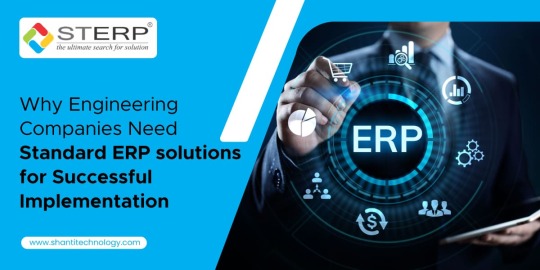
What Is ERP Software and Why Does It Matter?
ERP software is an integrated system that unifies core business processes such as procurement, inventory management, production planning, finance, and customer relationship management (CRM) into a centralized platform. This ensures seamless communication between departments, minimizes errors, and optimizes resource usage. For manufacturers, manufacturing enterprise resource planning solutions offer specific functionalities to address production scheduling, supply chain management, and quality control. These features are critical for scaling operations and improving overall business performance.
Benefits of ERP Software for Manufacturers
1. Centralized Operations
Manufacturers handle a wide range of tasks daily, from raw material procurement to final product delivery. ERP software integrates all these processes into a single platform, eliminating silos and ensuring real-time communication. Leading ERP software providers in Bhopal specialize in offering solutions tailored to manufacturing needs, ensuring smoother operations.
2. Enhanced Decision-Making
ERP systems provide accurate, real-time data through intuitive dashboards and analytics tools. This enables business leaders to make informed decisions, whether it is about production schedules, resource allocation, or financial forecasting. Engineering firms, in particular, can benefit from ERP software for engineering companies in India, which offers insights specific to their project-oriented workflows.
3. Optimized Resource Utilization
Effective resource management is critical in manufacturing. ERP software helps monitor and allocate raw materials, workforce, and equipment efficiently, reducing waste and ensuring optimal use of resources. By partnering with an engineering ERP software company in Bhopal, businesses can access customized solutions that cater to their unique requirements.
4. Improved Productivity
Automation of routine tasks, such as inventory tracking and order processing, frees up employees to focus on more strategic activities. This boost in productivity is a significant reason why manufacturers using ERP software for engineering companies experience faster growth.
5. Scalability
As manufacturing businesses grow, their operational needs become more complex. ERP systems are designed to scale with the organization, supporting additional locations, products, and services. Local ERP software companies in Bhopal provide scalable solutions that align with the growth trajectories of businesses in the region.
Why Bhopal Manufacturers Should Choose Local ERP Providers
Bhopal’s manufacturing and engineering sectors are thriving, thanks to its strategic location and growing industrial base. Local businesses stand to gain significantly by adopting ERP systems offered by experienced ERP software providers in Bhopal.
1. Tailored Solutions
Local providers understand the specific challenges faced by manufacturers in Bhopal and can customize solutions to meet their needs. For example, ERP software companies in Bhopal may offer modules tailored to local supply chains or compliance requirements.
2. On-the-Ground Support
Partnering with a local ERP software company in Bhopal ensures faster response times and personalized support during implementation and maintenance. This reduces downtime and ensures a smoother transition.
3. Cost-Effectiveness
Local ERP providers offer cost-effective solutions by eliminating the need for long-distance travel or remote troubleshooting. Businesses in Bhopal can enjoy world-class services without breaking the bank.
ERP Software for Engineering Companies in India
Engineering companies often deal with project-based operations requiring precise planning, tracking, and execution. ERP software for engineering companies in India is designed to address these needs, offering features like project management, resource scheduling, and cost tracking.
In Bhopal, collaborating with an engineering ERP software company in Bhopal ensures that local engineering firms have access to specialized solutions. These tools not only enhance operational efficiency but also improve project delivery timelines, leading to greater customer satisfaction.
ERP for Manufacturing Companies in India
India’s manufacturing sector is booming, driven by government initiatives and growing demand. To stay competitive, businesses must invest in advanced tools like ERP for manufacturing companies in India. These systems help manufacturers streamline production, manage supply chains, and maintain quality standards.
For manufacturers in Bhopal, adopting ERP software in Bhopal is a strategic move to keep pace with industry leaders. Features like real-time inventory management, production scheduling, and demand forecasting ensure businesses can respond quickly to market changes.
Real-Life Benefits of ERP Implementation
Manufacturers who implement ERP systems report:
Reduced Costs: By optimizing processes, ERP systems lower operational costs.
Faster Delivery: Improved production planning leads to quicker order fulfillment.
Better Quality: Automated quality checks ensure products meet customer expectations.
Businesses in Bhopal that have partnered with ERP software companies in Bhopal have experienced significant improvements in productivity, customer satisfaction, and revenue growth.
How to Choose the Right ERP Software Company in Bhopal
Selecting the right ERP provider is critical for a successful implementation. Here is what manufacturers should look for in an ERP software company in Bhopal:
Industry Expertise: Choose providers specializing in ERP software for engineering companies or manufacturing sectors.
Customization: Ensure the solution aligns with your unique business processes.
Local Presence: A local provider offers faster support and a better understanding of regional requirements.
Scalability: Opt for a system that can grow with your business.
Conclusion
ERP software is no longer a luxury but a necessity for manufacturers aiming to grow faster and compete effectively. By integrating operations, improving resource management, and enhancing decision-making, ERP systems empower businesses to achieve their goals. For manufacturers in Bhopal, collaborating with a trusted ERP software company in Bhopal ensures tailored solutions, cost-effectiveness, and reliable support.
Whether you are part of the engineering sector or a manufacturing enterprise, investing in manufacturing enterprise resource planning solutions will position your business for success in today’s dynamic market. Do not wait—explore the benefits of ERP software in Bhopal today and take the first step toward sustainable growth.
#ERP for manufacturing company in India#ERP implementation company in India#Best ERP implementation agecny#STERP#ERP software for engineering companies#Manufacturing enterprise resource planning#Rajkot#Surat#Ahmedabad#Gujarat#Maharashtra#Mumbai#Pune#Bhopal#Indore#Madhya Pradesh#ERP software for engineering companies in India#ERP integration#cloud ERP#ERP India#small business#ERP implementation
3 notes
·
View notes
Text
E-commerce Marketing Automation Streamlining Your Online Sales Strategy

If you want your e-commerce strategies to run more smoothly automation tools are essential. It is challenging to provide each customer with the ideal incentive for purchase or to provide personalized offers to each one in real-time.
But you can do that with the assistance of an automated workflow. You can significantly increase your conversion rates by engaging visitors at the right times. You want to optimize each site visit and set up workflows for marketing automation.
However, you can increase conversion rates without spending a lot of time on manual tasks by establishing straightforward marketing automation processes.
How many people visit your website each day? An e-commerce site with an average conversion rate of 2.3% will unavoidably lose 97.7% of its visitors.
Fundamentals of E-commerce Marketing Automation
Marketing automation is virtually necessary in the realm of online retail. As a result, this technology can help to improve the customer experience and thus is critical for successful e-commerce strategies.
Defining Marketing Automation
Essentially, marketing automation is exactly what it sounds like using a software platform to automate menial and repetitive war-room-level marketing-centric tasks. Such tasks are involved in email campaigns, social media posting and ad campaigns. Creating this system will enable us to quickly establish a connection with our audience as required.
This technology saves time but it also helps ensure our messaging is more consistent across all touchpoints. Meaning we can segment our audience automatically and create personalized experiences depending on what they do. Which in turn provides better engagement and higher customer satisfaction.
Benefits of Automating E-commerce Marketing
When we can automate our e-commerce marketing efforts the benefits are enormous. The first thing is by saving time on manual tasks we can optimize the use of our resources. We can concentrate on the important and strategic work.
Second, automation has helped me improve customer relations. With personalized communication and offers informed by customer behavior can make the shopping experience more personal. Therefore, this leads to higher conversion rates and more customer loyalty often.
Lastly, using automation tools for data analytics gives us many useful insights. We use these insights to understand performance, refine campaigns and make informed decisions on how can improve your marketing efforts.
Key Components in E-commerce Marketing Automation
There are multiple important parts we need to consider in e-commerce marketing automation. Mainly these are the automation tools. They include email marketing platforms to customer relationship management (CRM) systems.
After that we need to consider customer segmentation This allows us to segment our audience into more targeted groups by interest or buying behavior. This will also allow us to customize our marketing messages for each group accordingly.
Finally, the importance of analytics. The data we get through our automated processes will need to be parsed and analyzed before the successful measurement of our campaigns. Armed with this information. We refine our strategies to enhance future marketing efforts that will ultimately drive further growth and more engagement.
Signification of Marketing Automation
Automation tools have become crucial to survival because consumers expect more personalized interactions than ever. This way, we get automatic answers depending on user behavior so that our messages are sent to the right people at the appropriate time. It greatly assists with lead nurturing and closing sales.
#ecommerce#marketing#automation#artificial intelligence#entrepreneur#digitaltransformation#saas#software#innovation#business#digital marketing#connection#artists on tumblr
2 notes
·
View notes
Text
How do I generate merchant cash advance leads?
Generating leads for a merchant cash advance (MCA) business involves a mix of strategic marketing and networking efforts aimed at reaching business owners who might need quick access to cash for their operations. Below are several effective strategies you can employ to generate quality leads:
. FREE MCA LEADS - https://www.fiverr.com/leads_seo_web .
OR

Digital Marketing Pay-Per-Click (PPC) Advertising: Use platforms like Google Ads or Bing Ads to target specific keywords related to MCAs and small business financing. This allows your ads to appear when potential clients are actively searching for financing options. Social Media Advertising: Platforms like Facebook, Instagram, and LinkedIn offer targeted advertising options to reach specific demographics, locations, and interests relevant to your target market.
Content Marketing Blogging: Regularly publish helpful articles related to business finance, the benefits of MCAs, and best practices for managing business cash flow. Optimize content for SEO to improve visibility in search engine results. Videos: Create and share informational videos about how MCAs work and the types of businesses that can benefit from them. Ebooks and Guides: Offer free ebooks or guides on topics such as improving business cash flow, how to apply for an MCA, and tips for financial management in exchange for contact information.
Email Marketing Newsletters: Build an email list through your website and send out regular newsletters with industry news, tips, and special offers to keep your audience engaged. Lead Nurturing Campaigns: Develop email sequences that provide valuable information to potential clients over time, guiding them through the decision-making process of applying for an MCA.
Networking and Partnerships Industry Events: Attend or sponsor trade shows, conferences, and networking events where you can meet business owners and introduce your services. Referral Partnerships: Partner with accountants, business consultants, and financial advisors who can refer clients to you. Affiliate Marketing: Set up an affiliate marketing program where others can earn a commission for referring new clients to your business.
Direct Outreach Cold Calling: Though it can be challenging, cold calling businesses that fit your target demographic can lead to direct conversations about their financing needs. Direct Mail: Send out well-crafted brochures or postcards to businesses that might benefit from MCAs.
Online Presence and Local SEO Website Optimization: Ensure your website is optimized for local SEO so that it ranks well in search results for MCAs in your geographic area. Google My Business: Create or claim your Google My Business listing to enhance your local online presence.
Webinars and Live Sessions Educational Webinars: Host webinars that help educate business owners about alternative financing options and the specific advantages of MCAs.
Public Relations Press Releases: Issue press releases regarding newsworthy updates about your business to capture the attention of potential clients and improve brand visibility.
Social Proof and Testimonials Customer Reviews: Encourage satisfied clients to leave positive reviews online. Showcase these testimonials on your website and social media channels.
Technology and Data Analytics Lead Management Software: Utilize lead management or CRM software to track leads efficiently, manage follow-ups, and convert prospects into clients more effectively. By employing a combination of these strategies, you can generate a steady stream of leads for your MCA business. It's essential to monitor the performance of each method, optimizing your approach based on what generates the most effective and high-quality leads.
#mca leads#mcaleads#merchant cash advance#business loan#cash advance#b2b lead generation#loans#mortgage
3 notes
·
View notes